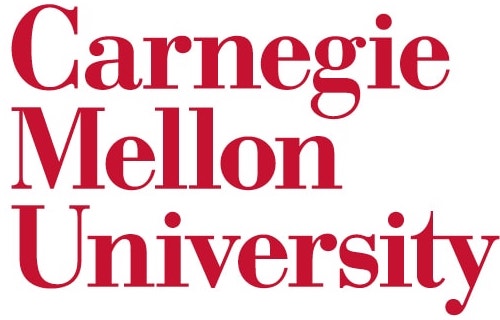Package: dsm
Python package dsm provides an API to train the Deep Survival Machines and associated models for problems in survival analysis. The underlying model is implemented in pytorch.
For full documentation of the module, please see https://autonlab.github.io/DeepSurvivalMachines/
What is Survival Analysis?
Survival Analysis involves estimating when an event of interest, T would take place given some features or covariates X. In statistics and ML, these scenarios are modelled as regression to estimate the conditional survival distribution, P(T>t|X).
As compared to typical regression problems, Survival Analysis differs in two major ways:
- The Event distribution, T has positive support i.e. T ∈ [0, ∞).
- There is presence of censoring i.e. a large number of instances of data are lost to follow up.
Deep Survival Machines
Deep Survival Machines (DSM) is a fully parametric approach to model Time-to-Event outcomes in the presence of Censoring, first introduced in [1]. In the context of Healthcare ML and Biostatistics, this is known as 'Survival Analysis'. The key idea behind Deep Survival Machines is to model the underlying event outcome distribution as a mixure of some fixed ( K ) parametric distributions. The parameters of these mixture distributions as well as the mixing weights are modelled using Neural Networks.
Usage Example
from dsm import DeepSurvivalMachines
model = DeepSurvivalMachines()
model.fit()
model.predict_risk()
Recurrent Deep Survival Machines
Recurrent Deep Survival Machines (RDSM) builds on the original DSM model and allows for learning of representations of the input covariates using Recurrent Neural Networks like LSTMs, GRUs. Deep Recurrent Survival Machines is a natural fit to model problems where there are time dependendent covariates.
Deep Convolutional Survival Machines
Predictive maintenance and medical imaging sometimes requires to work with image streams. Deep Convolutional Survival Machines extends DSM and DRSM to learn representations of the input image data using convolutional layers. If working with streaming data, the learnt representations are then passed through an LSTM to model temporal dependencies before determining the underlying survival distributions.
⚠️ Not Implemented Yet!
Deep Cox Mixtures
The Cox Mixture involves the assumption that the survival function of the individual to be a mixture of K Cox Models. Conditioned on each subgroup Z=k; the PH assumptions are assumed to hold and the baseline hazard rates is determined non-parametrically using an spline-interpolated Breslow's estimator. For full details on Deep Cox Mixture, refer to the paper:
Deep Cox Mixtures for Survival Regression. Machine Learning in Health Conference (2021)
Installation
[email protected]:~$ git clone https://github.com/autonlab/DeepSurvivalMachines.git
[email protected]:~$ cd DeepSurvivalMachines
[email protected]:~$ pip install -r requirements.txt
Examples
References
Please cite the following papers if you are using the dsm package.
@article{nagpal2021deep,
title={Deep Survival Machines: Fully Parametric Survival Regression and\
Representation Learning for Censored Data with Competing Risks},
author={Nagpal, Chirag and Li, Xinyu and Dubrawski, Artur},
journal={IEEE Journal of Biomedical and Health Informatics},
year={2021}
}
[2] Deep Parametric Time-to-Event Regression with Time-Varying Covariates. AAAI Spring Symposium (2021)
@InProceedings{pmlr-v146-nagpal21a,
title = {Deep Parametric Time-to-Event Regression with Time-Varying Covariates},
author = {Nagpal, Chirag and Jeanselme, Vincent and Dubrawski, Artur},
booktitle = {Proceedings of AAAI Spring Symposium on Survival Prediction - Algorithms, Challenges, and Applications 2021},
series = {Proceedings of Machine Learning Research},
publisher = {PMLR},
}
[3] Deep Cox Mixtures for Survival Regression. Machine Learning for Healthcare (2021)
@InProceedings{nagpal2021dcm,
title={Deep Cox Mixtures for Survival Regression},
author={Nagpal, Chirag and Yadlowsky, Steve and Rostamzadeh, Negar and Heller, Katherine},
booktitle={Proceedings of the 6th Machine Learning for Healthcare Conference},
pages={674--708},
year={2021},
volume={149},
series={Proceedings of Machine Learning Research},
publisher={PMLR},
}
Compatibility
dsm requires python 3.5+ and pytorch 1.1+.
To evaluate performance using standard metrics dsm requires scikit-survival.
Contributing
dsm is on GitHub. Bug reports and pull requests are welcome.
License
MIT License
Copyright (c) 2020 Carnegie Mellon University, Auton Lab
Permission is hereby granted, free of charge, to any person obtaining a copy of this software and associated documentation files (the "Software"), to deal in the Software without restriction, including without limitation the rights to use, copy, modify, merge, publish, distribute, sublicense, and/or sell copies of the Software, and to permit persons to whom the Software is furnished to do so, subject to the following conditions:
The above copyright notice and this permission notice shall be included in all copies or substantial portions of the Software.
THE SOFTWARE IS PROVIDED "AS IS", WITHOUT WARRANTY OF ANY KIND, EXPRESS OR IMPLIED, INCLUDING BUT NOT LIMITED TO THE WARRANTIES OF MERCHANTABILITY, FITNESS FOR A PARTICULAR PURPOSE AND NONINFRINGEMENT. IN NO EVENT SHALL THE AUTHORS OR COPYRIGHT HOLDERS BE LIABLE FOR ANY CLAIM, DAMAGES OR OTHER LIABILITY, WHETHER IN AN ACTION OF CONTRACT, TORT OR OTHERWISE, ARISING FROM, OUT OF OR IN CONNECTION WITH THE SOFTWARE OR THE USE OR OTHER DEALINGS IN THE SOFTWARE.



